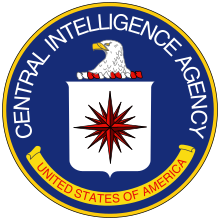CIA drug trafficking allegations
[1] In the early 1970s, Alfred McCoy "accused American officials of condoning and even cooperating with corrupt elements in Southeast Asia's illegal drug trade out of political and military considerations"[2] and stated that the CIA was knowingly involved in the production of heroin in the Golden Triangle of Burma, Thailand, and Laos.In the 1980s, American journalists Anthony Avirgan and Martha Honey claimed that the perpetrator of the La Penca bombing was linked to a drug-financed "Secret Team" of FDN Contras and CIA agents.[7] The Christic Institute then filed a $24 million civil suit on behalf of Avirgan and Honey 30 charging defendants—including CIA officials—of illegally participating in assassinations, as well as arms and drug trafficking.[12] Webb's series raised allegations that U.S. government officials—including Central Intelligence Agency (CIA) and Department of Justice (DOJ) employees—either ignored or protected drug dealers in Southern California who were associated with the Nicaraguan Contras.The Corsican Gang was protected by the CIA and the SDECE after World War II in exchange for working to prevent French Communists from bringing the Old Port of Marseille under their control.[14] During the Korean War, the first allegations of CIA drug trafficking surfaced after 1949, stemming from a deal whereby arms were supplied to Chiang Kai-shek's defeated generals in exchange for intelligence.Alfred McCoy writes, "According to several unproven sources, Air America began flying opium from mountain villages north and east of the Plain of Jars to CIA asset Hmong General Vang Pao's headquarters at Long Tieng.[27][28] Some theories have claimed the involvement of political figures Oliver North, then vice president and former CIA director George H. W. Bush, and then Arkansas governor Bill Clinton.According to all three alleged sources the CIA was collaborating with drug traffickers bringing cocaine and marijuana into the United States, and using its share of the profits to finance the Contra rebels attempting to overthrow Nicaragua's Leftist Sandinista government.They wrote that Camarena, like Mexican journalist Manuel Buendía, discovered that the CIA helped organize drug trafficking from Mexico into the United States in order to fund the anti-communist Contras in Nicaragua as a part of the Cold War.Buendía had found out about the CIA-contra-drugs-DFS connection, which seriously questioned Mexican sovereignty, while Camarena learned that the CIA had infiltrated the DEA and sabotaged its work so as to interfere with the clandestine contra-DFS-traffickers network.Later official investigations attempted to limit criminal responsibility to the dirty connections between drug traffickers, secret agents and corrupt police, leaving out the (geo)political ramifications.In 2019, the United States Department of Justice began reinvestigating Camarena's murder,[44] and in 2020, Amazon Studios released a documentary, The Last Narc, supporting the allegations, and implicating Félix Rodríguez.[45] In a blog post, Camarena biographer Elaine Shannon described the allegations as a "Deep State conspiracy theory," and interviewed former DEA agent Jack Lawn, who agreed with her.[48] Writers such as Peter Dale Scott and Jonathan Marshall have suggested that the U.S. government's desire to conceal or protect these clandestine shipments led it to close the DEA office in Honduras when an investigation began into SETCO, allowing Matta-Ballesteros to continue and expand his trafficking.McCoy has also written that during the 1980s "to fight the Soviet occupation of Afghanistan, the CIA, working through Pakistan's Inter-Services Intelligence, backed Afghan warlords who used the Agency's arms, logistics, and protection to become major drug lords.[57] Then in October 2009, the New York Times published an article by Dexter Filkins, Mark Mazzetti, and James Risen who reported that unnamed former and current American officials had said Ahmed Wali Karzai had received regular payments from the CIA for eight years—starting shortly after his brother was elected President—and was involved in the trafficking of opium in Afghanistan.
Central Intelligence Agencytrafficking of illicit drugsjournalistic investigationsAlfred McCoyPeter Dale ScottGary WebbAlexander CockburnLarry CollinsHouse of RepresentativesSenateDepartment of JusticeCIA's Inspector GeneralTim WeinerGolden TriangleUnited States Department of StateInspector General of the CIAUnited States House Committee on Foreign AffairsUnited States Senate Select Committee to Study Governmental Operations with Respect to Intelligence ActivitiesChurch CommitteeLa Penca bombingFDN ContrasChristic InstituteUnited States District Court for the Southern District of FloridaUnited States Court of Appeals for the Eleventh CircuitSupreme Court of the United StatesDark AllianceUnited States Department of Justice Office of the Inspector GeneralCentral Intelligence Agency Office of Inspector GeneralUnited States House Permanent Select Committee on IntelligenceIllegal labsheroinMarseillePaul CarboneFrench ConnectionCorsican GangWorld War IIFrenchCommunistsOld Port of MarseilleKorean WarChiang Kai-shek"Secret War" in LaosPathet LaoMiao/Meo(Hmong)opium poppyPlain of JarsRoyal Lao Air ForceAir Americafront organizationCIA asset Hmong General Vang PaoLong TiengAnthony PoshepnyVietnam WarFloridaDrug Enforcement AdministrationRolling Stone magazinedrug lordWilliam M. LearyCurtis PeeblesFrontlineMena Intermountain Municipal AirportOliver NorthGeorge H. W. BushBill ClintonCIA involvement in Contra cocaine traffickingUnited States Senate Committee on Foreign RelationsSenator John KerryKerry Committee reportContrasSan Jose Mercury Newscocainecrack cocaineLos AngelesLos Angeles TimesThe New York TimesThe Washington PostDark Alliance: The CIA, the Contras, and the Crack Cocaine ExplosionjournalMexican Drug WarFox NewsEnrique CamarenaContraSandinistaKiki CamarenaProcesoCharles BowdenManuel BuendíaCold WarAmazon StudiosThe Last NarcFélix RodríguezJuan Matta-BallesterosIllegal drug trade in VenezuelaOpium production in AfghanistanUS Ambassador in KabulCIA station chiefHamid KarzaiDexter FilkinsMark MazzettiJames RisentraffickingMahmud KarzaiGerald PosnerWashington DecodedĐặng Văn QuangKill the MessengerJeremy RennerSicarioEmily Bluntspecial agentMexican drug cartelAmerican MadeBarry SealMedellín CartelMena, ArkansasSnowfallCaliforniaCIA transnational anti-crime and anti-drug activitiesAir America (airline)Air America (book)Air America (film)Nugan Hand BankVang PaoIke AtkinsonKhun Sa